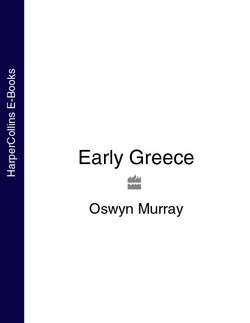Читать книгу Early Greece - Oswyn Murray - Страница 10
Preface to Second Edition (1993)
ОглавлениеTWELVE YEARS on this little book takes on a different character; conceived as a call to change the way that history is understood, it has succeeded beyond my wildest dreams: translated into Spanish, German and Italian, it is in danger of becoming the new orthodoxy. I hope that a second generation of readers will view it critically, as a starting point for their own perceptions. My aim was and remains to demonstrate that history is not a fixed narrative of facts, but a continuing effort to understand the past and the interconnections between events.
Some chapters are little changed, either because they still satisfy me, or because they seem worth preserving as a basic statement from which subsequent research has proceeded. I am especially proud of two chapters: that on Euboean society (ch. 5) was the first attempt to bring together the scattered evidence in a coherent account; and it was due to chapter 6 that the ‘Orientalizing Period’ is now recognised as a significant age; it was this book which first took the concept from art history, and applied it to society as a whole. In other chapters new discoveries and new thoughts have led me to make significant revisions. One notable omission, the neglect of Peisistratid Athens, has been made good. The Further Reading section has been completely revised; and, when changes have not been made in the text, it often explains the reasons or refers to subsequent discussion of the question.
Reviewers were kind to the work; but I learned most from the longest and most critical of these reviews, by S.M. Perevalov in the Russian Journal of Ancient History 1983 no. 2, pp. 178–84. He pointed out a number of basic presuppositions behind my approach of which the reader should be aware. It is true that in the development of early Greece I have tended to emphasise external factors over internal social development; and it is true that I attribute especial importance to military developments and trade, rather than to land tenure and the development of slavery, as factors leading to change.
On this occasion I should like to thank especially Kai Brodersen of Munich, who was responsible for the elegant German translation, and for making many improvements to the text of the English version in the course of his work. Two new members of Fontana also deserve the thanks of all who read this series. The love of history and personal encouragement of Stuart Proffitt ensured the appearance of a second edition of the series, and Philip Gwyn Jones has patiently steered it through the press.
